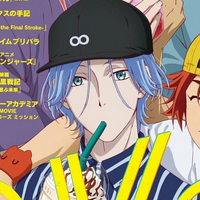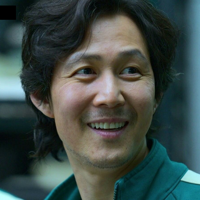Langa Hasegawa tipe kepribadian MBTI
Kepribadian
"Jenis kepribadian apa itu Langa Hasegawa? Langa Hasegawa adalah tipe kepribadian ISTJ di mbti, 9w1 - sp/sx - 954 di enneagram, RCUAI dalam Big 5, SLI dalam socionics."
[1/6] Before I dive into this very long (and very time consuming) analysis, I want to first clear up the misconception that motor abilities are 100% correlated with functions. While functions *might* contribute to the orientation towards activities that *require* certain motor skills, at the end of the day, they're the lens by which people view and interact with the world around them. I've seen so many comments use the horrible stereotype that Ne-Si users can't be good at physically inclined activities to back up their arguments which is not only blatantly false, but extremely misleading. Cognition =/= behaviour. That's what other systems of typology are here to determine. Jung posited that introverted sensation concerns itself with objective stimuli, however, it contains a subjective factor unlike the objectivity of Se. Si is based on the perception where one contributes a subjective sensory impression to the objective stimulus. He then describes how this premise applies to the Si type, stating, "Whereas, the extraverted sensation type is determined by the intensity of the objective influence, the introverted type is orientated by the intensity of the subjective sensation-constituent released by the objective stimulus. Obviously, therefore, no sort of proportional relation exists between object and sensation, but something that is apparently quite irregular and arbitrary judging from without, therefore, it is practically impossible to foretell what will make an impression and what will not." While Si might naturally gravitate towards the past, it isn’t just about that, nor are flashbacks or traditionalism explicit evidence of it. Everyone has memories, so if that were the case, then we'd all have Si in our main stack. There's more to it than that. @[pathmor] makes a great comment about Si on Uraraka's profile saying, "Si is not about past experience to fuel current perception. Introverted sensation is the prioritisation of subjective impressions derived from sensory stimuli. When coming across an ornamental box, the Si type would allow each stimulus to form a separate impression specific to this box, perhaps the specific tortoiseshell-like arch. If Si uses past experience, it focuses more on the impression the event left than the event itself. Si/Ne and Ne/Si are reductionist." Si is concerned with the impressions a subject gives as well as the idyllic forms drawn from sensory stimuli. What I've noticed based on observation alone is that these impressions and forms will sometimes even work in tandem with the other introverted function's characteristics. My Si is attached to things that go hand in hand with my dominant Fi, and that seems to be the case with the way Langa's tertiary Fi works, if that makes sense. He holds certain things dear to him *because* of how they're painted within his inner world, and he often purposefully puts himself in situations where he can recreate the exact internal sensory experiences he once did in the past. His arc centres around the resurgence of a feeling — this *impression* of fun, fulfilment and happiness that's derived from sensory stimuli, and his urge to chase that feeling around because he didn’t know where it came from is Fi's values backing up the initial Si impression. Adam was supposedly just another contributor to the familiarity Langa was searching for, hence him telling Reki that he would "understand as a skater" during their conflict in episode 7. A lot of my technical understanding of Si stems from @[st]'s video titled "The Peculiar Nature of Introverted Sensation" (https://www.youtube.com/watch?v=is95OGFQsec). In it, he states that the function contains a philosophical problem or concept known as 'qualia', which refers to "the subjective component of sensory impressions." This notion is reflected in Langa's worldview where he processes everything through a collection of internal sensory information. He also doesn't singularly focus on events themselves, rather for him, it's about the personal impact they leave. @[clairehu.tiger] expresses on Kageyama's profile that, and this is what Langa does, "Si apprehends archetypes of sensations, which are developed subjectively in the psyche to form a "mirror world" of objective reality, according to Jung. Instead of seeing the pure intensity of a green colour and apprehending it as it is (which Se would focus on), for example, Si apprehends its "greenness", a subjective sensory ideal of what green is. If one sees the form of a shape, Si would naturally compare that shape to the most "perfect" version of it in their minds."
Biografi
Langa Hasegawa (馳河 ランガ Hasegawa Ranga), known in "S" as Snow (スノー Sunō), is a half-Japanese exchange student who has just returned from Canada to Okinawa, where his mother grew up. He gets caught up in "S," an underground skateboard race, along with Reki Kyan, and the two are quick to become close friends. Unlike Reki, Langa has no skateboarding experience, but his knowledge in snowboarding helped him get a head start. #gay #renga
Kepribadian correlate

Reki Kyan

Miya Chinen

Ainosuke Shindo (ADAM)

Kaoru Sakurayashiki (Cherry Blossom)

Kojiro Nanjo (JOE)

Tadashi Kikuchi

Hiromi Higa (Shadow)

Nanako Hasegawa (Langa's Mother)













